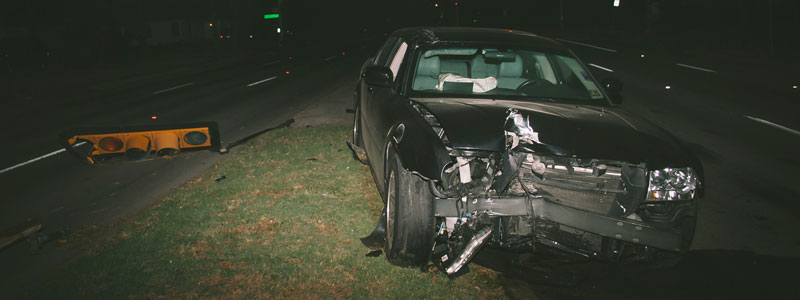Do I Have to Stop if I Witness a Car Accident in Indiana?
You do not have to stop and assist if you witness a car accident, provided that you are not involved in the accident.
In the U.S., most states have no general law that says citizens have a duty to stop and render aid. In other words, no one can sue you if you don’t stop to help.
This does not apply if you are in any way a part of the car accident, though.
If you are involved in a car accident, Indiana law requires you to stop. Failure to stop makes it a hit-and-run car accident, which is a criminal offense.
Good Samaritans Are Protected by the Law

You don’t have to stop and help if you see a wreck, but you may want to.
Some folks worry about stopping and helping. They may have heard stories of people suing do-gooders who tried to help because something went wrong.
Fortunately, Indiana has Good Samaritan laws that would protect you if you tried to help a car accident victim and you accidentally caused harm.
IC 34-30-12-1 clearly states:
“A person who comes upon the scene of an emergency or accident…and, in good faith, gratuitously renders emergency care at the scene of the emergency or accident is immune from civil liability.”
In other words, victims cannot sue Good Samaritans for any harm they cause unless there is evidence of gross negligence or willful misconduct.
Helping at the Scene of a Car Accident
If you stop at the scene of a car accident to help, take the following steps:
- Call 911 and inform the operator of the car accident.
- See if anyone is hurt and needs medical assistance, informing the 911 operator if there are injuries.
- Avoid moving seriously injured victims, as it may worsen the injuries.
- Remove car accident victims from dangerous situations (e.g., an exposed electric cable) if possible.
- Cooperate with police and other authorities who arrive at the scene.
What Is Gross Negligence?

The law protects Good Samaritans who try their best but accidentally injure car accident victims. For example, if you help someone out of a wrecked vehicle and they dislocate their shoulder in the process, they cannot sue you for their shoulder injury.
However, let’s say you come across a car accident victim who is unresponsive. You’re not a doctor, but you’ve seen many bystanders in movies and TV shows give people emergency tracheotomies to help them breathe. Instead of calling for help, you decide to try to give the victim a tracheotomy with just a pen cap and an unsterilized pocket knife.
In this case, since you have no medical training, your attempted tracheotomy is likely to fall under the category of “gross negligence.” You could have easily called for a professional to help, but instead, you put your own desire to play “surgeon” before your duty to help the car accident victim. As a result, the victim of your “surgery” could likely sue you for any damages you cause.
Good Samaritans Save Lives

Although the law does not require you to stop and help, the fact is that Good Samaritans save lives.
In 2011 in Fort Wayne, a woman’s vehicle burst into flames after a car accident. An off-duty state trooper stopped to try to pull her out, to no avail.
Another man — a regular citizen — then stopped to help. He and the officer successfully pulled the victim out.
“Without [the Good Samaritan’s] help, there was no getting her out of that vehicle,” the officer commented. “He was instrumental in helping me take her out of that vehicle, and to me, he’s the true hero in all of this.”
Legal Help after an Indiana Car Accident
Unfortunately, Good Samaritans aren’t guaranteed at every car accident scene.
If you’ve been injured in a car accident through no fault of your own, Hensley Legal Group may be able to help. Call us today at (317) 472-3333, or contact us online for a free conversation about your car accident claim.
Be sure to download our free ebook, Consumer’s Guide for Injured Victims, for more information about what to do after an Indiana car accident.